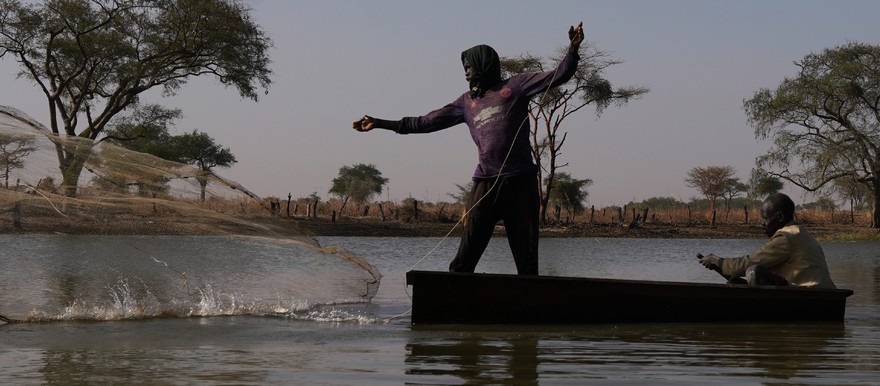The Food and Agriculture Organization (FAO) has launched a project to support fisher communities in South Sudan to effectively exploit the fisheries sector towards commercialization and economic resilience.
The project, funded by the Kingdom of the Netherlands, is designed to focus on building capacities at national and local levels to gather reliable data that will be used in accurate estimation of total catches from the waters of South Sudan and their economic value.
The USD 5 million project was launched on 6 January following a three-day inception workshop attended by implementing partners to streamline the project rollout plan. The project was launched by the Embassy of the Kingdom of Netherlands, FAO, the Ministry of Livestock and Fisheries and other implementing partners.
“South Sudan is one of the few countries in the world where fish die out of old age,” pointed out Meshack Malo, FAO Representative.
“South Sudanese could fix some of their own economic challenges through adequate investments in the sector. The lack of supply routes allowing transportation of fresh fish from the fishing sites to far market locations remains one of the main challenges for the fishing sector” he added.
“We have just started a five-year programme which is all about resilience through development of data programming that empowers the people to exploit their talent and natural resources and to be able to take a step ahead and develop themselves”, said Marc Mazairac, First Secretary for Development Cooperation of the Embassy of the Netherlands.
While speaking at the official opening of the inception workshop, the Minister of Livestock and Fisheries, James Janka Duku said that “no proper scientific assessments have been carried out to assess the amount of fishery resources in South Sudan, the existing varieties of species and their economic value.
“However, it is estimated that the fish that can be caught from South Sudan waters in a year amounts between 400 000 and 450 000 metric tonnes. This output from the fisheries sector could inject about USD 56 million into the economy every year,” said Duku.
The 2013 crisis impelled many conflict-affected households to resort to fishing as an initial survival strategy when other foods were not available, increasing the contribution and importance of small-scale fishing to livelihood from 6.8 percent to 10.2 percent. The reliance on this source of income in times of crisis has led to a high concentration of populations near water sources, such as rivers and swamps.




